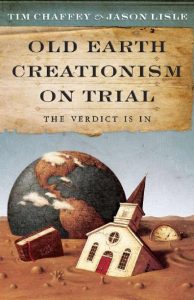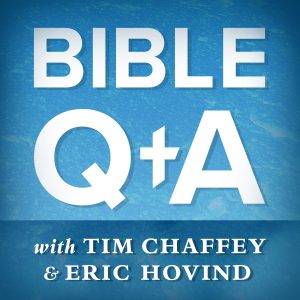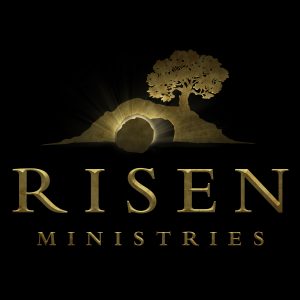
My book, Old-Earth Creationism on Trial, explains many of the problems with attempting to add billions of years to the Bible
Recently, I heard a popular Bible teacher suggest that there were probably gaps in the genealogies found in Genesis 5 and 11. Consequently, it would be impossible to use the data in these chapters to determine when Adam lived, and by extension, how long ago God made everything.
For those unfamiliar with the issues involved in this discussion, Genesis 5 gives a genealogy from Adam to Noah. The genealogy in Genesis 11 begins with Noah’s son Shem and moves down to Abraham. The age of each person on the list is given when their son of record was born. For example, we are told that Adam was 130 when Seth was born, and Seth was 105 when Enosh was born, and so on. When we add up the ages of each person at the birth of his son in these two genealogies, we see that roughly 2000 years passed from the creation of Adam until Abraham. And since there were roughly 2000 years from Abraham to Jesus and 2000 years from Jesus until today, many Christians believe God created everything around 6000 years ago.
The Greek translation of the Old Testament, known as the Septuagint includes an additional 600 years from Adam to Noah and 650 years from Shem to Abraham. ((The Septuagint lists the “begetting ages” of the following twelve patriarchs as being 100 years higher than the Masoretic Text: Adam, Seth, Enosh, Cainan, Mahalaleel, Enoch, Arphaxad, Salah, Eber, Peleg, Reu, and Serug. An additional 50 years are cited for the begetting age of Nahor. If accurate, the Septuagint’s figures place the date of creation as 1,250 years earlier than the Masoretic Text.)) The issues involved in the Masoretic v. Septuagint debate are too detailed to address here. It is true that the Septuagint names an extra patriarch (Cainan) in the post-Flood genealogy, but this ultimately does not really impact the debate about whether the genealogies in Genesis 5 and 11 can be used to calculate that age of the earth. That may seem strange since I just mentioned a possible gap, but bear with me and you’ll see what I mean. ((If the “extra Cainan” found in the Septuagint is legitimate, then another 130 years needs to be added to the total.))
If we take these genealogies at face value we can calculate a ballpark figure for the age of the earth according to the Bible. I say “ballpark” because we shouldn’t assume each man was born on his father’s birthday. That is, we are not told how many months and days passed in Adam’s 130th year before Seth was born or in Seth’s 105th year before Enosh was born and so on. Accounting for all the potential variables, the Bible places the date of creation somewhere between 5950–7600 years ago. ((In addition to the Septuagint’s figures, interpretive decisions must be made regarding the length of time the Israelites were in Egypt (215 or 430 years) and the co-regency length of some of Judah’s kings (appx. 45 years).))
Gaps in Other Biblical Genealogies
In an effort to harmonize the Bible with the popular notions that the earth is about 4.5 billion years old and that man came on the scene a few million years ago, many Christians have attempted to avoid the implications of the Genesis 5 and 11 genealogies. By claiming that innumerable gaps can be inserted into these genealogies, the calculations mentioned above become virtually meaningless and one can assert that the Bible does not speak to the age of the earth at all.
How can Christians ignore what seems to be the obvious result of the ages given in these chapters? The common approach is to demonstrate that biblical genealogies often have gaps. After all, when the Hebrew language states that Person X begot Person Y, it does not necessarily mean that Person Y is the son of Person X. It is possible that Person Y is the grandson or later descendant. In some cases it is indisputable that gaps exist, like Matthew 1. In other examples, a strong case can be made for a gap, but possible explanations exist to make such cases less than watertight.
Matthew 1
In Matthew 1, the apostle traces the ancestry of Jesus from Abraham, and he divides his genealogy into three sections, each consisting of 14 names. From Abraham to David, there are 14 generations listed, and the same is true from David’s son Solomon to Jeconiah. Another 14 generations are given after Jeconiah until Jesus. Apparently, Matthew intentionally sought to make these into groups of 14 since he omits some names in the genealogy. For example, between Joram and Uzziah (aka Azariah) in Matthew 1:8 there should be three more names: Ahaziah, Joash, and Amaziah (see 1 Chronicles 3:11–12). Obviously, Matthew’s genealogy has a gap in it, and I don’t know of anyone who disputes this.
David
Now let’s look at a couple examples of genealogies that seem to have gaps. In Ruth 4:20–22, we are given five generations from Nahshon to David: Nahshon, Salmon, Boaz, Obed, Jesse, David. These names match every other genealogy given about these men in Scripture (Matthew 1, Luke 3, and 1 Chronicles 2). The difficulty here is that Nahshon was alive during the Exodus and 1 Kings 6:1 explains that 480 years passed from the Exodus until David’s son Solomon started building the temple in Jerusalem. If we subtract a generous 80 years to account for David’s age when Solomon was born and Solomon’s age when temple work began, the five generations between Nahshon and David need to span 400 years. The problem is likely even more difficult than this. Nahshon’s son Salmon married Rahab, so Salmon was almost certainly an adult 40 years after the Exodus. So it seems that the four generations from Salmon to David need to span approximately 360 years. This means that Salmon, Boaz, Obed, and Jesse needed to be about 90 years old each (on average) when they had their son of record. Although it is within the realm of possibility, it seems quite unlikely that each of these men were having children at such a late age during this period in history. ((Genesis 5 shows that people prior to the Flood commonly had children after reaching 100 years of age. Following Abraham, who was 100 when Isaac was born, the age of people when their children were born dropped steadily.)) So it is rather reasonable to conclude that a gap exists somewhere in this list, perhaps between Obed and Jesse.
Moses
Another genealogy that may include a gap is found in Exodus 6:16–20, which traces the line from Levi to Moses: Levi, Kohath, Amram, Moses. There are two potential problems here if there are no names missing. First, Kohath was apparently already born when the Israelites entered Egypt (Genesis 46:11). If the short sojourn view is correct, then the Israelites were there for 215 years. Since Moses was 80 when the Exodus occurred, this means that 135 years passed between Kohath entering Egypt and his grandson’s birth. This is plausible if Kohath came to Egypt at a young age and he and Amram averaged about 70 years at the birth of their children. However, this view depends on the short sojourn. I believe a much stronger case can be made for the long sojourn, ((The details involved in this debate would take far too much space to address here. A good article on the subject can be found here: http://www.biblearchaeology.org/post/2012/01/05/The-Duration-of-the-Israelite-Sojourn-In-Egypt.aspx.)) which means they would have been in Egypt for 430 years, so Kohath and Amram would’ve needed to average about 175 years at the birth of their sons, which is impossible since they died at 133 and 137, respectively.

Was Moses really the great grandson of Levi or were there unmentioned generations between them?
The impossibility of the latter scenario may seem to lend support to the short sojourn view. However, there is another problem with the no-gap view of Exodus 6:16–20, and it creates a serious difficulty for the short sojourn view. That is, during roughly the same amount of time as the three generations from Levi to Moses, there were apparently 11 generations between Levi’s brother Joseph and Moses’ successor, Joshua (1 Chronicles 7:23–27). Even if we account for the fact that Joshua was in the generation after Moses and ignore the fact that Joseph was younger than Levi, we must assume that ten generations passed in Joshua’s line during the span of three generations in the line of Moses.
Given these details, it seems very likely that a gap exists somewhere between Levi and Moses. If so, it would almost certainly be between Kohath and Amram, which would mean that Exodus 6:16–20 is really only telling us about the tribe, clan, and family of Moses rather than providing us with a detailed lineage.
Gaps in Genesis 5 and 11?
There can be little doubt that the Bible includes gaps in some genealogies. Matthew 1 certainly skips some generations while the lineages of David and Moses seem to be missing some names. Do these details and others like them lend support to the claim that Genesis 5 and 11 might have gaps and are therefore incapable of providing pertinent details to calculating the biblical age of the earth? Not at all! Let me say that another way. The fact that some genealogies in the Bible contain gaps does not lend any credibility to the claim that the genealogies in Genesis 5 and 11 have gaps. Here’s why.
You may have noticed that a certain detail was missing in all the other genealogies cited above that is included in both Genesis 5 and 11. That is, in the two Genesis genealogies we are told the age of the person when their son was born. Adam was 130 years old when Seth was born. Even though some have proposed that Seth was Adam’s grandson or great grandson, it makes zero difference to the calculation of the biblical age of the earth. Whether Seth was Adam’s son, grandson, or great grandson, Adam was still 130 years old when Seth was born. And Seth was 105 years old when Enosh was born. So this entire argument misses the mark.. Compare this with the fact that we are not told how old the men were between Nahshon and David or between Levi and Moses when they had their sons. As such, it is possible for gaps to exist in the lines of David and Moses, but these passages are not used in calculating the biblical age of the earth.
Adding generational gaps to the Genesis genealogies does not add a single day to the biblical age of the earth because Adam was 130, Seth was 105, etc. And it does not matter if these names represent dynasties, as some have proposed—Adam’s “dynasty” would have still been 130 when Seth’s came along, and Seth’s “dynasty” would’ve been 105, etc.
Conclusion
The oft-used tactic of citing gaps in certain biblical genealogies does not support the flawed idea that an indefinite amount of time can be added to the genealogies of Genesis 5 and 11. In fact, it is rather odd that some Christians think that adding gaps between Adam and Seth or between any of the other patriarchs in these chapters would add any time to the biblical age of the earth—it’s really a matter of basic math.
Thus, these two genealogies can certainly be used to attain a ballpark figure for the biblical age of the earth and for the timing of man’s creation, which occurred five days after the earth was created.


